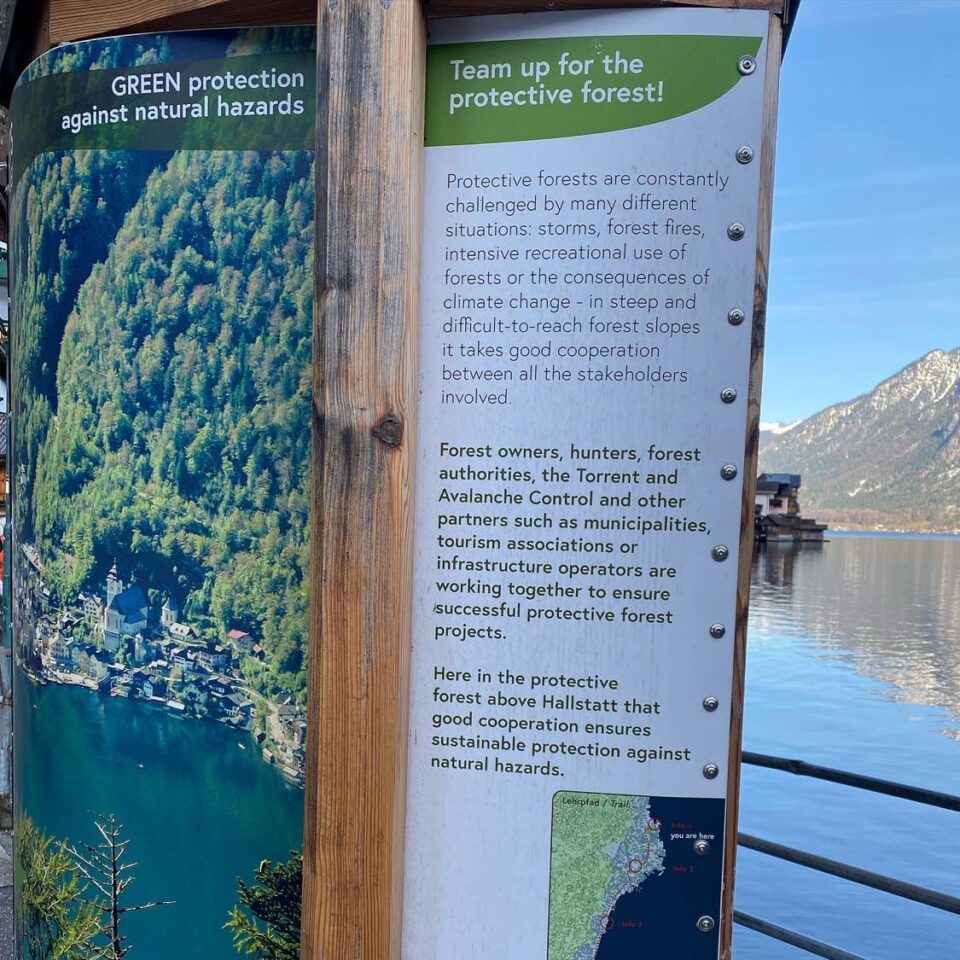
7 Ways Austria is a Model of Sustainable Living

Having recently visited Austria for the very first time, I was incredibly surprised by how sustainable the country was. I had heard that they were ahead with their renewable energy use but I was blown away by so many other aspects of their environmental responsibility. Here are 7 ways in which I believe Austria is a model of sustainability and a country whose footsteps we should all aspire to follow.
1. Renewable Energy Leadership
As mentioned above, Austria has been a frontrunner in harnessing renewable energy sources and has significantly reduced its dependence on non-renewable resources. The country has invested heavily in hydropower, wind, and solar energy, accounting for around 79% of their energy use right now with the target of 100% being in place for 2030.
2. Efficient Public Transportation
Well, what can I say about our experience of Austria’s public transport other than wow?! Electric cars are commonplace, the buses within Salzburg are all powered by electricity via overhead cables, even the boats we went on were electric. On top of being quieter, reducing air pollution and using renewable energy, we found all modes of transport to be clean, efficient, affordable and reliable. It was a far cry from a UK city.

3. Green Spaces and Biodiversity
Austria places a strong emphasis on preserving its natural landscapes and biodiversity which we saw firsthand during our stay. The country is home to numerous national parks and protected areas, where strict conservation measures have been implemented in order to protect and boost woodlands and wildlife. I loved that this was publicly shared in some areas we visited.


4. Waste Management and Recycling
Austria actively participates in good and efficient recycling programs, with separate bins for different types of waste giving them one of the highest recycling rates in the world! Recycling here is sorted into organic waste, waste paper, and plastic packaging. Metal packaging and glass are binned separately, and all glass must be sorted by colour. Austria is strict about hazardous materials such as batteries going into landfill so there are also separate bins/collection points for these. We were also encouraged to bring a plastic bottle back to where we purchased it from for them to send off for recycling, offering compensation of €0.25. This is going to be rolled out across the whole country from 2025 (clearly this shop was steps ahead!)
5. Green Building and Urban Planning
Austrian cities showcase a commitment to sustainable urban planning, green spaces and architecture. Did you know that Vienna is classed as the greenest city in the world?! With farms, large green spaces, parks, woods and spaces designed to prioritise pedestrians and cyclists this is a city that shows exactly how sustainability can and should be done. On top of this, green building standards are widely adopted across Austria, using energy-efficient methods and the use of eco-friendly materials.

6. Eco-friendly Agriculture
Austria places a strong emphasis on sustainable agriculture practices. Organic farming is widely practised, reducing the use of synthetic pesticides and fertilisers. The promotion of local and seasonal produce not only supports the economy but also minimises the carbon footprint associated with food transportation.
7. Environmental Education and Awareness
According to my research, Austria places a significant focus on environmental education, fostering awareness and personal responsibility among its citizens. From schools to community programs, there is a concerted effort to instil a sense of environmental service. This commitment to education ensures that sustainability is not just a government initiative but a collective responsibility.

Austria was a breath of fresh air to visit (literally and metaphorically!) I was blown away by their passion for sustainability and care of their local environment. The more I saw, the more I wanted to learn about their practices and I cannot wait to go back to further see how they have implemented eco-living with modern, city life. I think we could learn a lot from a country like this.

Pin for later:

If you enjoyed this post you can follow more of our life, opinions and antics over on Facebook, Twitter, YouTube and Instagram. Plus feel free to come and join in with my parenting group ‘From One Parent to Another’ on Facebook.
If you’d like to contact me you can either leave me a comment or drop me a line via my contact me page.
For other topics similar to this one check out these suggestions below…




